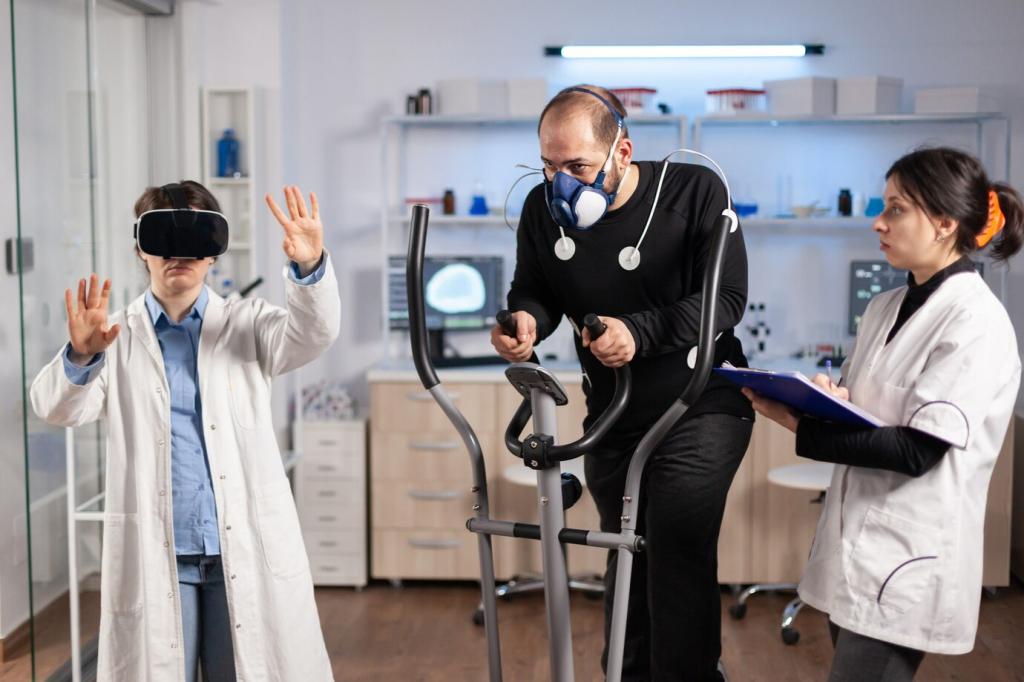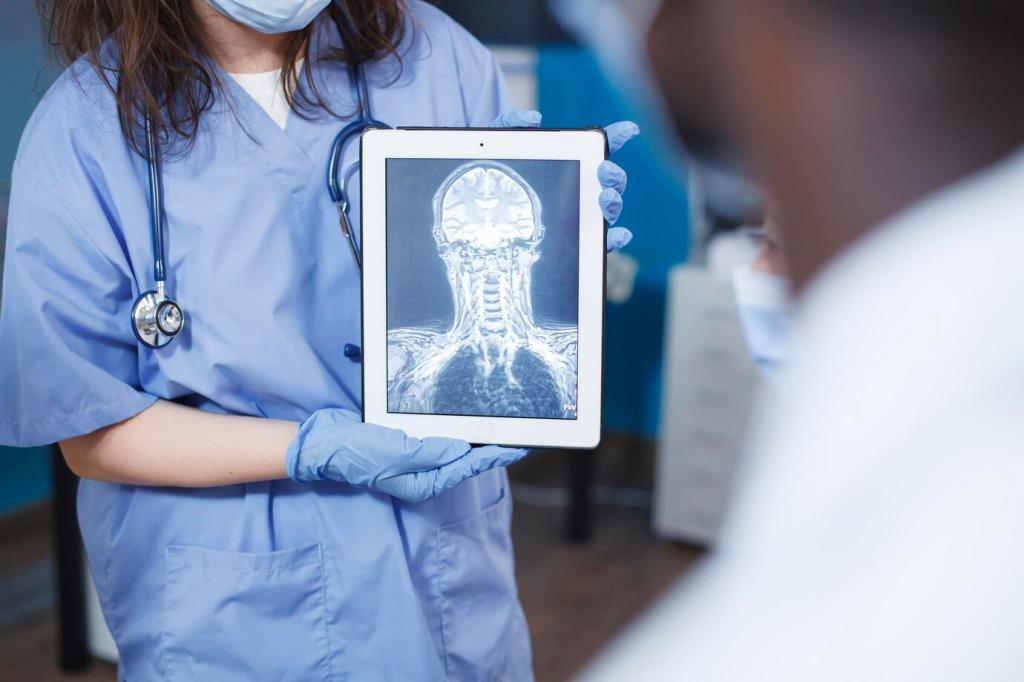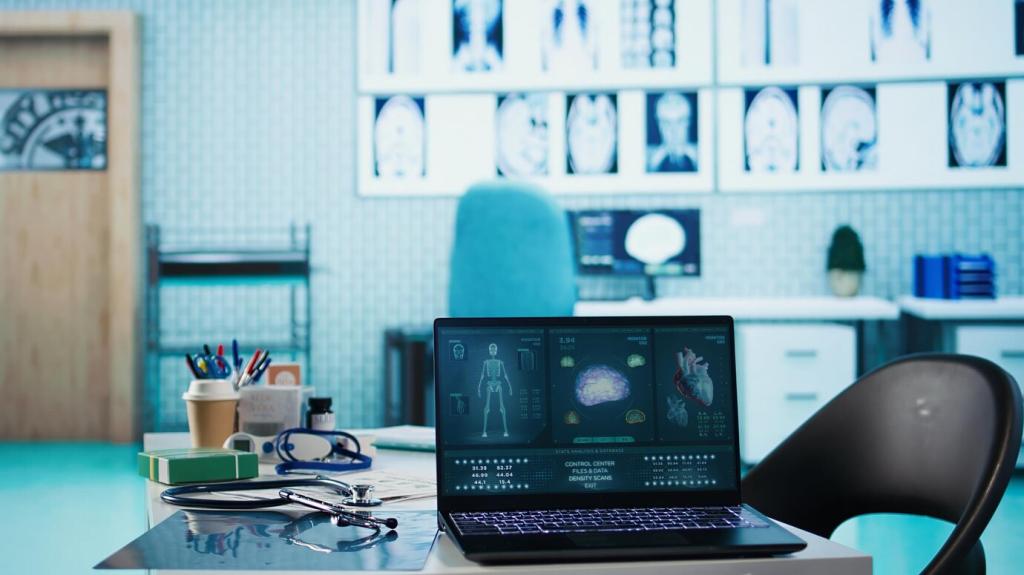Transforming Patient Care Through AI-Powered Solutions
Artificial Intelligence is fundamentally reshaping the healthcare landscape, offering unprecedented opportunities to enhance patient care, streamline clinical workflows, and improve diagnostic accuracy. By harnessing state-of-the-art AI algorithms, healthcare providers can deliver more precise, proactive, and personalized care than ever before. This transformation is not just about technology—it’s about empowering clinicians and patients, optimizing operational efficiency, and ultimately achieving better health outcomes. Explore how AI-powered solutions are setting new standards in patient care across diagnosis, care management, workflow optimization, and the future of healthcare.

Enhanced Imaging Analysis
Artificial intelligence is driving significant advancements in medical imaging interpretation. By leveraging deep learning algorithms, AI can rapidly analyze radiological images such as X-rays, MRIs, and CT scans, identifying subtle patterns and anomalies that may be imperceptible to the human eye. These AI-driven insights not only increase the accuracy of diagnoses but also enable earlier detection of diseases, leading to improved patient outcomes. With automated image analysis, radiologists and clinicians can make more informed decisions, reduce diagnostic errors, and streamline workflows, all while handling increasing volumes of imaging data.

Predictive Diagnostics and Risk Assessment
AI’s capacity to synthesize vast datasets from electronic health records and other sources allows for sophisticated predictive diagnostics. These systems can assess individual risk factors, analyze real-time patient data, and flag early warning signs of diseases such as sepsis, cancer, or cardiac conditions. By identifying patients at elevated risk before symptoms become critical, clinicians can act preemptively—implementing preventative strategies, optimizing monitoring protocols, and reducing the likelihood of adverse outcomes. This predictive capability embodies a shift toward proactive, rather than reactive, medicine.

Natural Language Processing for Clinical Insights
One of the most powerful applications of AI in diagnostics is the use of natural language processing (NLP) to extract critical information from unstructured clinical notes and documentation. NLP algorithms can scan physician notes, pathology reports, and other textual data to highlight relevant findings, suggest differential diagnoses, and enhance clinical documentation accuracy. This results in a more comprehensive view of the patient’s health status while reducing the administrative burden on providers, paving the way for more coordinated and effective care pathways.
Intelligent Scheduling and Resource Management
AI-driven systems are revolutionizing how healthcare facilities manage appointments, staff scheduling, and resource allocation. By analyzing historical data and current demand, artificial intelligence can predict patient influx patterns, optimize staff rosters, and ensure the most efficient utilization of imaging equipment, operating rooms, and other critical resources. This predictive approach minimizes patient wait times and reduces staff burnout, contributing to a smoother, more patient-focused experience while maximizing operational efficiency within the healthcare setting.
Clinical Automation and Administrative Support
Automation powered by AI is alleviating the administrative load on healthcare professionals by streamlining routine tasks such as billing, claims processing, and coding. Robotic process automation (RPA) coupled with AI can accurately extract relevant information from complex documents, ensure compliance, and reduce manual errors. This allows clinicians and administrative staff to redirect their efforts toward more complex, value-adding tasks, ultimately enhancing the patient’s journey through the healthcare system.
Clinical Decision Support and Alerts
Integrating AI-based decision support tools into the clinical workflow amplifies healthcare providers’ ability to make evidence-based decisions rapidly. These tools analyze patient data and current clinical guidelines to offer real-time suggestions regarding diagnostic tests, medication choices, or treatment protocols. Additionally, AI can trigger automated alerts for potential drug interactions, abnormal lab results, or critical condition warnings. This proactive support system enhances patient safety and care quality by ensuring that providers always have up-to-date, actionable insights at hand.
Previous slide
Next slide

Advancing Personalized and Preventative Care
Artificial intelligence facilitates the development of highly individualized treatment plans by integrating data from diverse sources—genetic information, lifestyle habits, and medical histories. AI algorithms analyze this complex information to recommend therapies tailored to each patient’s unique physiological and psychological profile. This more nuanced approach not only increases the efficacy of interventions but also reduces the risk of adverse effects, empowering patients to become active participants in decisions about their health.

